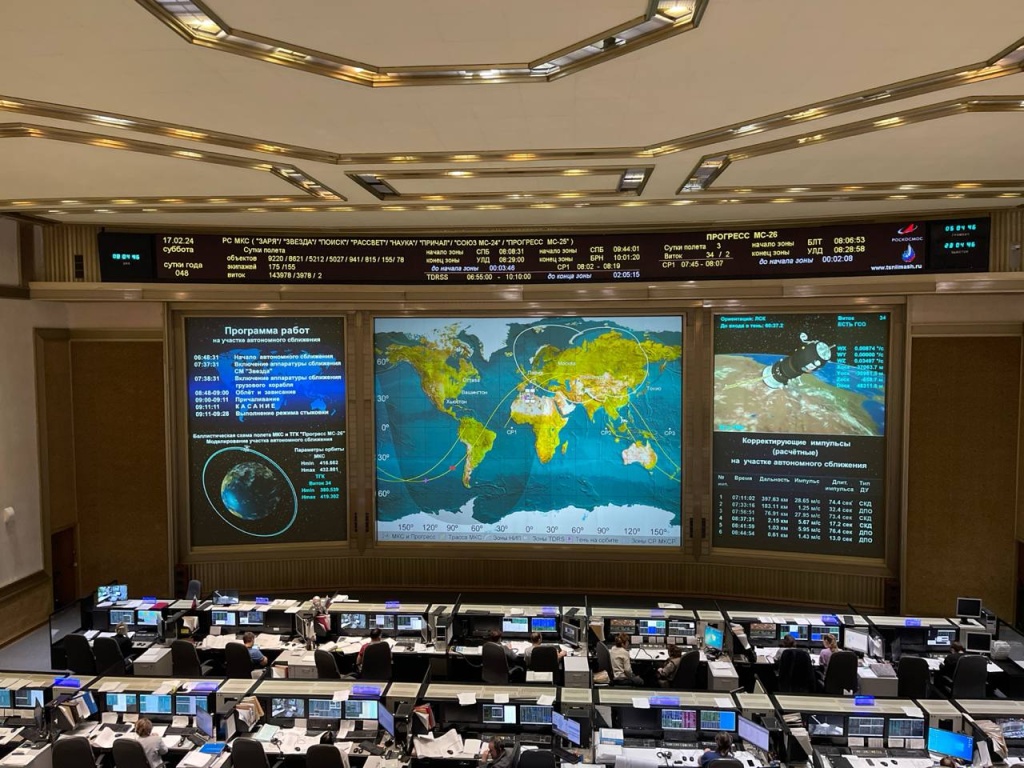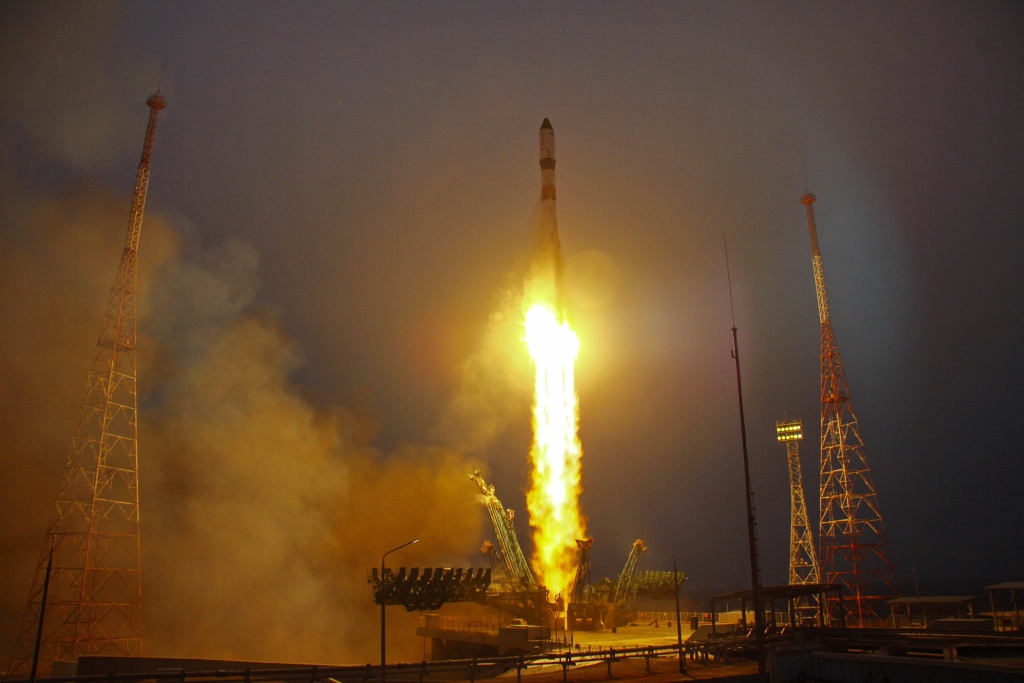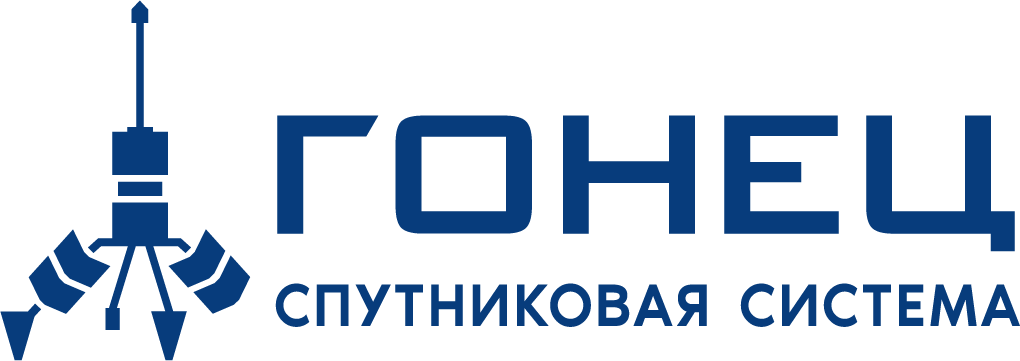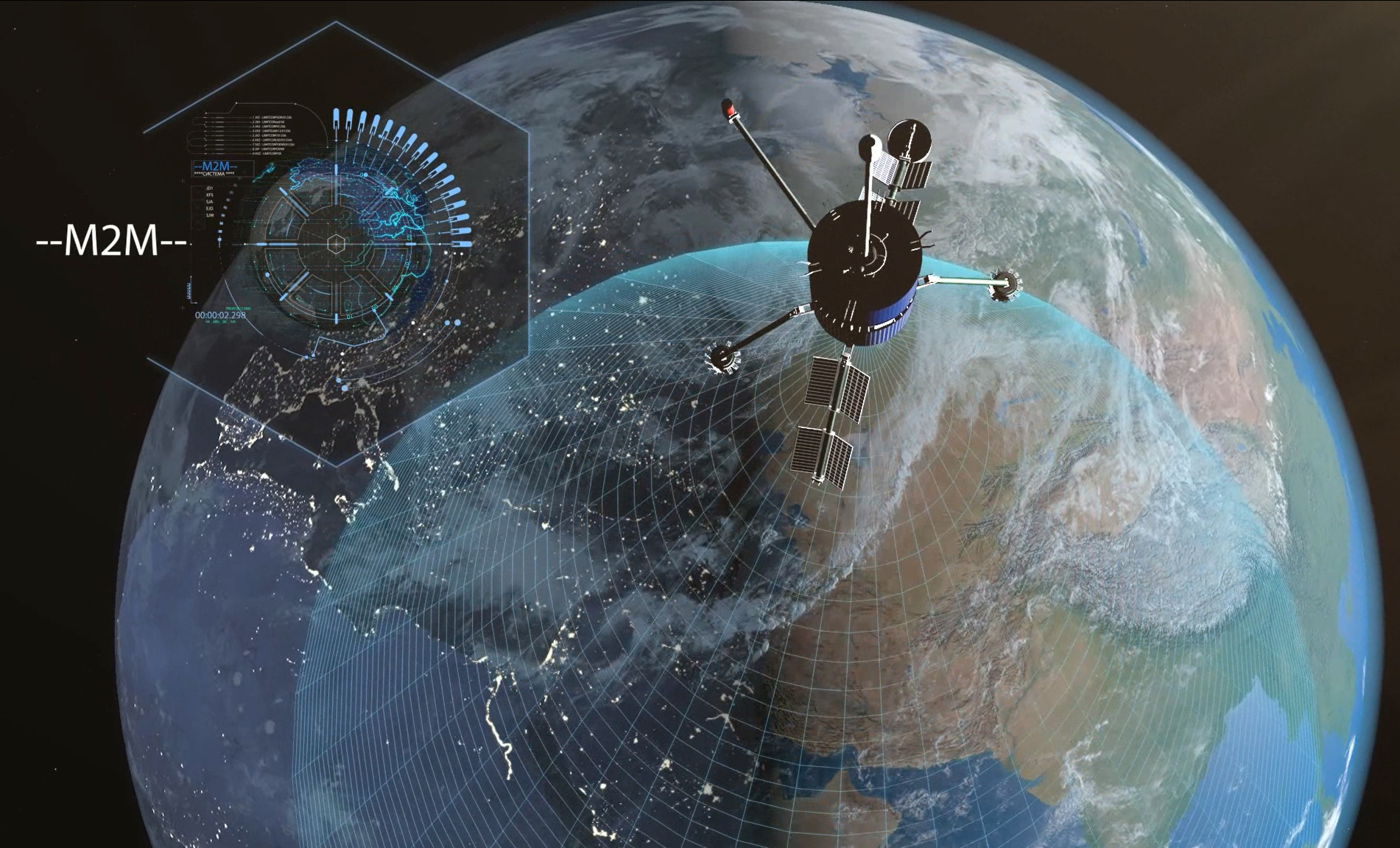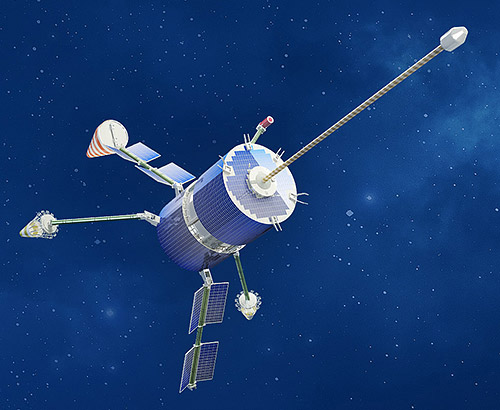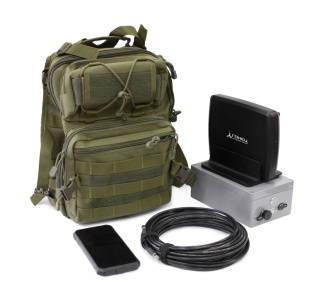The Multifunctional Space Relay System (MSRS) "Luch" (the operating organization is JSC Gonets Satellite System, part of the Roscosmos State Corporation), successfully completed the target tasks for data relay during the launch and flight of the Progress MS-26 transport cargo ship (TCS).
On February 15, at 06:25 Moscow time, a successful launch of the Soyuz-2.1a launch vehicle from the Progress MS-26 TCS took place from the 31st site of the Baikonur cosmodrome. On February 17, at 09:06 Moscow time, the cargo ship docked to the Zvezda service module of the Russian segment of the International Space Station (ISS RS). The launch of the spacecraft into a predetermined orbit, its separation from the third stage of the rocket, the deployment of antennas and solar panels, as well as its flight and docking with the ISS took place in normal mode. The process of conducting dynamic operations during the rendezvous and docking of the Progress MS-26 spacecraft with the ISS was monitored by Yuri Borisov, General Director of the Roscosmos State Corporation.
The flight of the Progress MS-26 spacecraft followed a two-day approach pattern, during the launch and flight, the relay channels of the Luch relay system were involved. After the cargo ship left the radio visibility zone of ground facilities, the transmission of telemetry data to the Flight Control Center (FCC) of the ISS RS, as well as the transmission of control commands on board the ship, was carried out using the Luch MSRS. In the course of further work, the Luch system relayed telemetry data from the Progress MS-26 spacecraft during its docking with the ISS RS. To organize the retransmission channels, 2 spacecraft of the system were involved: Luch-5A and Luch-5B, as well as means of a ground-based relay support complex. A total of 16 sessions were conducted.
Progress MS-26 delivered more than 2,500 kg of cargo to the ISS, including equipment and equipment for scientific experiments and station systems, clothing, food, medical and sanitary products for the crews of the 70th and 71st long-term expeditions, more than 500 kg of fuel, drinking water and nitrogen.
Photo: Roscosmos State Corporation
